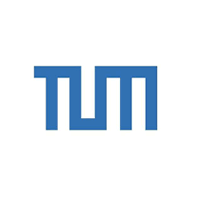About the Project
The Technical University of Munich (TUM) is one of the most renowned Universities in Europe. The research group of Prof. Christina Zielinski within the newly established Collaborative Research Center CRC 1335 (Immune Signalling in Cancer), funded by the German Research Foundation (DFG), is now offering
1 PhD Position in immunology
Successful candidates will employ state-of-the-art experimental approaches, cutting-edge analysis tools for immune regulatory mechanisms to pursue projects in molecular and cellular immunology. The research group headed by Prof. C. Zielinski focusses on human T cell immunology and questions related to the generation, maintenance and plasticity of human T helper cell subsets in health and disease (Zielinski et al. Nature 2012, Noster et al. Sci Transl Med 2015).
The prospective candidate will have the opportunity to investigate how a novel component of the tumor microenvironment regulates human anti-tumor immune responses. We have previously demonstrated that sodium chloride represents a novel "ionic checkpoint" for human T cells that instructs type 2 immune responses in T helper cells, which promote allergies. We will now address how ionic signalling shapes the tumor microenvironment and contributes to tumor growth.
Candidates should be highly motivated, team-oriented and diligent. Previous experience in immunology and basic immunological techniques such as flow cytometry and cell culture techniques are beneficial. Candidates should also be enthusiastic about working in an international collaborative research environment.
Applications should be sent by email to Prof. Dr. Christina Zielinski, TranslaTUM, Technical University of Munich, Germany. Please provide a CV, letter of motivation and contact details of referees.
Email: [Email Address Removed]
References
1. Matthias, J., J. Maul, R. Noster, H. Meinl, Y.-Y. Chao, H. Gerstenberg, F. Jeschke, G. Gilles, A. Welle, J. Walter, K. Eberhardt, D. Renisch, S. Donakonda, P. Knolle, D. Soll, S. Grabbe, N. Garzorz-Stark, K. Eyerich, T. Biedermann, D. Baumjohann, C. E. Zielinski, Sodium chloride is an ionic checkpoint for human Th2 cell responses and shapes the atopic skin microenvironment. Sci Transl Med (2019).
2. Zielinski, C. E., F. Mele, D. Aschenbrenner, D. Jarrossay, F. Ronchi, M. Gattorno, S. Monticelli, A. Lanzavecchia, and F. Sallusto. 2012. Pathogen-induced human TH17 cells produce IFN-gamma or IL-10 and are regulated by IL-1beta. Nature 484: 514-518.
3. Noster, R., R. Riedel, M. F. Mashreghi, H. Radbruch, L. Harms, C. Haftmann, H. D. Chang, A. Radbruch, and C. E. Zielinski. 2014. IL-17 and GM-CSF expression are antagonistically regulated by human T helper cells. Sci Transl Med 6: 241ra280.
4. Noster, R., H. D. de Koning, E. Maier, M. Prelog, E. Lainka, and C. E. Zielinski. 2016. Dysregulation of proinflammatory versus anti-inflammatory human TH17 cell functionalities in the autoinflammatory Schnitzler syndrome. J Allergy Clin Immunol. pii: S0091-6749(16)00266-9
5. Zielinski, C. E., D. Corti, F. Mele, D. Pinto, A. Lanzavecchia, and F. Sallusto. 2011. Dissecting the human immunologic memory for pathogens. Immunol Rev 240: 40-51.

 Continue with Facebook
Continue with Facebook

